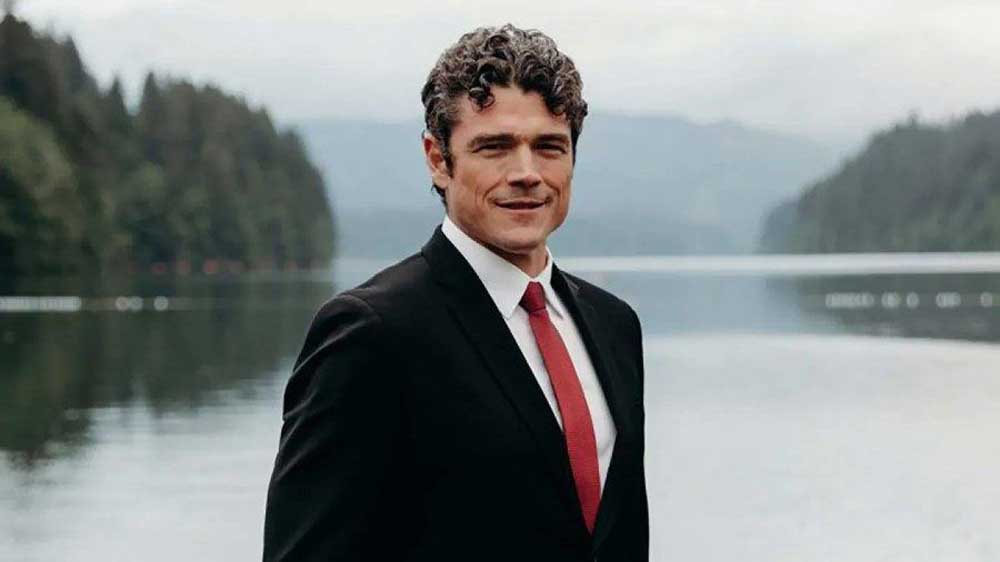Capitol Chatter: Oregon Senator’s party switch won’t change most legislation
Published 4:30 pm Thursday, January 21, 2021

- Capital Chatter square logo
A third political party has joined the Oregon Legislature. Sen. Brian Boquist of Dallas switched from Republican to being a registered voter with the Independent Party of Oregon.
Trending
The 90 members of the Legislature now line up as 55 Democrats, 34 Republicans and one Independent.
This won’t change the outcome of most legislation. Boquist remains committed to Republican values, including fiscal conservatism and small government. But he says other legislators have talked with him about making a similar switch in parties in an effort to find common ground instead of being mired in continuing divisiveness and partisanship.
There long have been centrist legislators who worked outside their party caucuses to look for common agreement instead of advancing partisan agendas. As I’ve reported, Rep. Marty Wilde, D-Eugene, and others redoubled those efforts in the fall.
Trending
Boquist defies pigeonholing. He’s described himself as a constitutional Republican. He’s worked across party lines on a range of issues, including transportation. Throughout his political, military and business careers, he’s shown no qualms about speaking his mind.
He regularly introduces constituents’ bills he knows he’ll vote against, believing the constituents’ ideas deserve airing even if he doesn’t agree. To tweak gun-control Democrats, in 2013 he presented a bill to require background checks for knife sales.
He gained national notoriety in 2019 when he warned Oregon State Police against forcing his return to the Oregon Capitol when Republican senators walked out. A big deal was made at the time but it petered out.
A virtual speech to Oregon: Due to COVID-19 protocols, Gov. Kate Brown gave her 2021 State of the State Address through the legislative website and YouTube on Wednesday morning.
Although it was delivered online instead of to a joint session of the House and Senate, the speech followed her standard format. She stressed her leadership in confronting the pandemic and other challenges, promoted her budget and policy proposals, and featured the stories of several Oregonians. The video format allowed her to ask friendly questions of her guests instead of her recounting anecdotes about them.
When she met with journalists last week by video conference, I had asked what she planned as far as overcoming the state’s intense polarization and bridging the urban-rural divide.
In her speech, the governor mentioned her proposed $100 million state investment in “broadband expansion statewide, with a focus on providing access to communities that have been disproportionately impacted during the pandemic, and ensuring every single school across Oregon is connected to the internet.
“This could be a bridge that helps Oregon mend the urban-rural divide. And the disparities in access aren’t just a problem here, but across the country. The Biden-Harris administration can help unite this unnecessary division, especially in the west, by providing federal funding for broadband expansion.”
There was little response to Brown’s speech until late in the day. Senate Republicans issued a statement saying, “The address notably lacked specifics on how to address Oregonian’s most pressing challenges such as lackluster vaccine distribution, helping small businesses and working families recover, wildfire recovery, and getting kids back to school.”
Changing challenges: The Oregon Senate Education Committee, chaired by Portland Democrat Michael Dembrow, will devote its Monday meeting to the K-12 school reopening plans.
The Wall Street Journal reports the U.S. drive for opening schools might run counter to European countries, which are closing schools again amid new evidence that “children are a considerable factor in the spread of COVID-19.”
Speaking of unity: Boquist’s Senate District 12 comprises the House districts represented by Republicans Ron Noble of McMinnville and Mike Nearman of Independence.
On Thursday, the Oregon House held its first floor session of the 2021 Legislature. The state Senate is scheduled to do so on Friday, after Tuesday’s and Wednesday’s legislative events were canceled due to security concerns.
Rep. Teresa Alonso León, D-Woodburn, opened the session by leading the Pledge of Allegiance. Noble then gave a thoughtful five-minute address on collaboration and unity:
“Oregonians embrace the idea that differing opinions and ideas should have equal voice. Although we still have a long way to go to ensure that all voices truly are equal, that still remains our goal. That includes different views on how and why the government, any government, should be involved in our lives. How much individual autonomy and freedom do we sacrifice in the interest of the collective good. And how much do we should restrict the good actors in order to restrain the bad actors.”
Noble called on his House colleagues to overcome the politics of division.
“I join others in a call for unity and healing,” he said. “We have an opportunity lead by example.”
The rest of the 18-minute floor session was devoted to publicly reading the titles of dozens of bills and resolutions so they could be sent to committees for work.
As for Rep. Nearman, the House Conduct Committee notified lawmakers and others that he would be in the building on Thursday. He is being investigated in regard to protesters entering the closed Capitol during the Dec. 21, 2020, special session.
The notice stated: “This email is to provide building-wide notice that Representative Mike Nearman will be entering the Capitol on Thursday January 21st. You are receiving this notice as part of an ongoing LBPR 27 interim safety measure. Retaliation toward any person participating in an ongoing investigation is prohibited.”
Quiet outside the Capitol: It’s weird seeing the Capitol with plywood over its first-floor windows in case of vandalism or violent protests. Driving around the Capitol Mall this week, I saw no other state buildings with such protective measures.
Only a few protesters turned out this week. Parts of streets were blocked off, but that was for repainting markings on a section of State Street that Salem is reconverting to two-way from one-way. State Street runs along the back of the Capitol campus.
Questions legislators should ask: In a Capital Chatter last month, I talked about how to evaluate legislators’ effectiveness.
Retired lobbyist Dave Fiskum, who was well-respected in his time around the Capitol, responded with four questions that he believes legislators should continually ask as they consider bills:
1. What is the problem for which a proposed policy or action is deemed to be the solution?
2. Is there an appropriate role for government to play?
3. If there is, what does the state expect to get for the money it is spending — in other words, what is the expected return on investment?
4. How will state government action affect the private sector, especially individual and corporate taxpayers on whom the state depends for money to fund its operations?
“In my experience,” Fiskum wrote, “these questions are seldom asked or answered.”





